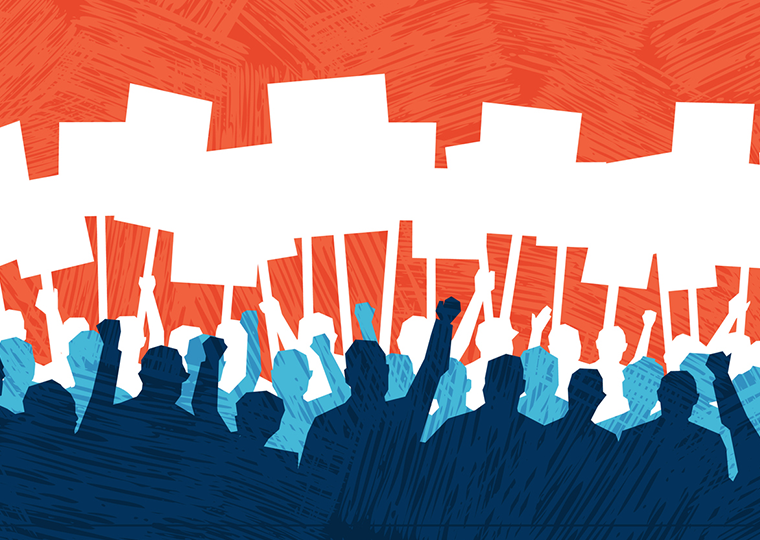Learning gradually versus all at once and how we estimate value
A vast realm of studies involves how humans make decisions under uncertainty. Even with the internet at our fingers, and now artificial intelligence chatbots standing at the ready, there’s no way to gather all the factors that could weigh on the many decisions we make each day.
Our brains especially struggle making decisions involving probabilities (as opposed to those that involve thinking about numeric values).
In a working paper, New York University’s Eungik Lee, UCLA Anderson’s Kathleen Ngangoue and NYU’s Andrew Schotter examine decision making under these two conditions. An example of uncertainty about a numeric value might be as simple as how much money you could get from selling a used car. Uncertainty about probability could be your chances of winning a prize.
Lee, Ngangoue and Schotter suggest that people prefer to learn gradually when dealing with numeric values in the hope that new information will arrive making the likely final value more attractive, i.e., get every last bid for that used car.
On the other hand, a substantial fraction of the same people prefer to resolve uncertainty around probabilities all at once, the authors report, and this could possibly be because people have a more difficult time forming a mental image of the probability of obtaining a particular thing.
Three Cards
Lee, Ngangoue and Schotter set up an experiment in which subjects face three cards, each representing either a monetary value or a probability of winning a prize. In order to determine their prize, participants were allowed to decide if they wanted to remove just one card at a time (gradual resolution), remove two cards at once (resolution all at once) or let the computer choose whether to remove one at a time or two cards (indifference).
The outcome of these experiments showed that subjects were more likely to choose gradual resolution if the three cards contained values rather than probabilities:
- Subjects chose the gradual approach 76.2% of the time when the cards were values.
- When the cards contained probabilities of winning a prize, the choices were split, with subjects choosing gradual resolution 44.3% of the time and resolution all at once 48.7% of the time.
- Furthermore, 43% of subjects demonstrated a reversal in their preference when moving between learning about the value cards and the probability cards. Meaning that, on average, they preferred to learn gradually about monetary values but immediately about probabilities.
A Fourth Card
Another finding suggested that the preference for gradual resolution increased as the differences between the numbers on the cards were greater. In other words, a greater uncertainty about the eventual value prompted subjects to prefer gradual over one-shot resolution.
To test the robustness of their findings and the impact of history on subjects’ decisions, the researchers added a fourth card. In this experiment, subjects are shown the values (or the probabilities) of the four cards and then the cards were flipped over. The subject then randomly chose a card to be removed. Afterward, subjects were shown the value (or probability) of the card that was removed and then proceeded with what was, again, the three-card experiment — with the identical values (or probabilities) for the cards as in the previous experiment.
The experiment was set up this way so that the researchers could see how new information impacted decisions.
The results suggest that preferences for gradual or all-at-once resolution can be affected by news. When the lowest value — or probability — card was blindly removed in the first step (its removal increased the expected value or probability of the final prize) subjects continued to have a substantial preference for gradual resolution in the money relative to the probability domain.
But when the highest card was removed, this bad news made subjects more likely to choose resolution all at once for both values and probabilities, eliminating the difference between the two concepts. Put simply, the domain of uncertainty matters less after bad news.
But why would anyone in the experiments choose to resolve uncertainty gradually when they could’ve found out their prizes immediately? And why did they choose gradual resolution more often for values than probabilities?
Lee, Ngangoue and Schotter propose that people value the way in which their final prize is determined. That is, when presented with different lotteries over possible prizes, they find some lotteries more enjoyable than others.
Enjoying the Lottery Itself
Consider the example in which a subject may get $20, $50 or $80 — each an equal chance. The subject can wait until one card is removed which, in the next period, would then lead to one of three possible contingencies: $20 or $50, $20 or $80, or $50 or $80 — each an equal chance. According to standard economic reasoning, our subject should be indifferent between playing the three-card lottery now or one of the three possible two-card lotteries later because chances over final payoffs are the same.
However, suppose the subject finds the prospect of a two-card lottery between $50 or $80 a lot more enjoyable than the other ones. The only chance to experience that is to have one card removed from the original three-card lottery. In other words, choosing to resolve gradually in the hope of facing the preferred lottery in the future. Thus, the subject’s preferences on what lottery should be used to determine the payoff will impact how the subject would like to resolve uncertainty over time.
To investigate this idea, the authors presented subjects with different sets of lotteries, asked them to compare them, and then examined whether the way subjects evaluate lotteries correlates with their preferences for the resolution of uncertainty. The experiment shows:
- When subjects contrast lotteries to each other, they perceive greater differences between monetary prizes than between probability prizes. In other words, subjects perceive more variation and, hence, more uncertainty between monetary prizes than between probability prizes, which leads them to care more about the resolution of uncertain monetary prizes.
- The way subjects contrast lotteries to each other is predictive of their resolution choices. The more they prefer the lotteries associated with gradual resolution, the more they will choose gradual over immediate resolution.
Their findings suggest that accepted notions of “expected utility,” an economic framework for decision-making based on overall satisfaction/benefit and the chance of receiving that benefit, may be too limited to account for all aspects of decision making. Future research could expand on these findings to explore other factors that influence preferences toward uncertainty resolution.
By studying these underlying mechanisms, it becomes possible to create more accurate models of demand for information, which can be applied to improve real-life decision making in areas such as financial planning, risk management and consumer behavior.
Featured Faculty
-
Kathleen Ngangoué
Assistant Professor of Global Economics and Management
About the Research
Lee, E., Ngangoue, K., & Schotter, A. (2023). The Resolution of Uncertainty in the Value and Probability Domains.






